Growing out of autism
Can You Grow Out of Autism?
Neurological development changes with age for everyone, even autistic folks. But that doesn’t mean you can grow out of autism.
Autism spectrum disorder (ASD) is a neurodevelopmental condition that may cause difficulty with communication in social settings and lead to repetitive behaviors.
Conversations around autism often are often centered on autistic children. Many people may question the prevalence of autism in adults and whether the diagnosis can change over time.
Although how autism may present in an individual can change, an individual cannot grow out of autism.
“ASD is not an on and off switch,” says Nicole Tetreault, PhD, a neuroscientist and author in Los Angeles. “It’s an identification meant to help people get the proper supports and guides in place so they thrive and live in their magic.”
A note on neurodivergent people
There is no cure for autism, and many people in the autistic community don’t feel the need for one. Instead, they recognize autism as a neurotype rather than a disability or condition that needs to be cured.
Neurodivergent folks, including autistic people, may communicate in diverse ways. For instance, avoiding eye contact and fidgeting may help them concentrate better or feel more comfortable in conversation.
Many autistic folks consider ASD an aspect of their personality rather than something to improve or fix. This is connected to the idea of using language like neurodivergent or neurodiverse, which conveys a variance in neurological processing without placing any values or judgment.
Everyone — including neurotypical people — grows and develops at different rates throughout their lives. And because autism exists on a spectrum, one person’s behavior can’t be compared with another’s.
“Humans develop asynchronously, [meaning] that regions of the brain grow at varying rates and time points and develop uniquely,” Tetreault says.
Yet some autistic folks may develop different coping skills as they get older. For example, stimming preferences may change as an autistic person finds different ways to self-soothe.
For example, stimming preferences may change as an autistic person finds different ways to self-soothe.
Diane Gould, a licensed clinical social worker and a therapist in Chicago, says that autistic individuals can become more adaptable, especially when they get the support they need.
She adds that the inverse may also be true — people with ASD may become more rigid, anxious, and less willing to engage with the world if they don’t get the support and accommodations they need to thrive.
Questioning whether an autistic person will “grow out of” their disorder is potentially harmful and fails to acknowledge autism as part of their identity.
Autistic folks shouldn’t have to feel like they need to change, and placing the expectation on them could suppress a fundamental aspect of their personality.
As a result, some autistic folks may mask their identity to please others. And in doing so, they may appear on the outside to have changed or “grown out” of their disorder.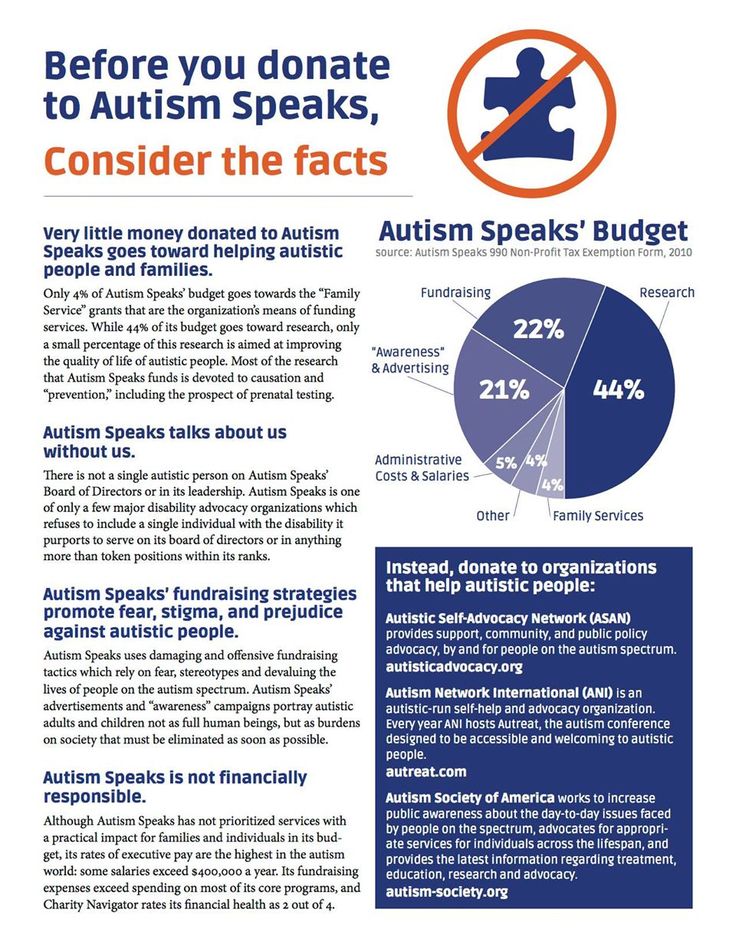
“This takes a great toll on them and sometimes brings them to the point where they can’t function,” Gould says. “We need to be careful not to reinforce masking and instead learn to respect autistic people for who they are.”
Accepting autism as part of a person’s identity means supporting their unique strengths rather than aiming to change their behavior.
“The identification of autism can be misunderstood where people think of it as a deficit-based or that there is something to fix,” Tetreault says. “There is a unique individual — and the individual is beyond the label.”
She adds that encouraging autistic children to lean into their natural passions and interests can benefit them in the long run. And using language like “neurodivergent” helps an autistic person feel understood rather than ostracized.
Misdiagnoses among autistic adults may occur if external symptoms are less visible. In some cases, an autistic individual may be misdiagnosed with an alternate condition.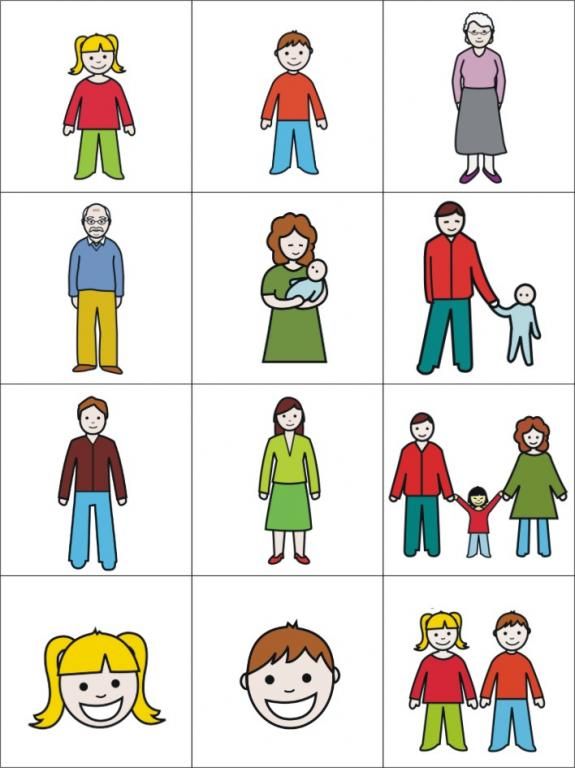
“Many girls and women have been told they have anxiety and ADHD when they are autistic,” Gould says. “Many boys and some girls are told that they have ADHD and (oppositional defiance disorder) ODD and can’t be autistic because they make eye contact, are imaginative, and socially motivated.”
As a result of being misdiagnosed, folks who may be on the autism spectrum cannot receive the support and care they need.
“People should not be diagnosed quickly from the DSM-5 — that could lead to an incorrect diagnosis that may be proved wrong later in life,” Gould says.
The expectation that someone will “grow out of autism” can be harmful and cause an autistic person to mask or hide who they truly are.
An accurate autism diagnosis will not change or disappear over time. But as neurodivergent folks continue to age and develop, how they interact with the world does, too — just like neurotypical individuals.
Adequate support systems and accommodations can aid in the healthy development and exploration of an autistic person’s identity. And specialized therapies can help autistic folks learn more about their coping skills, such as working with their stims or addressing comorbid mental health disorders.
And specialized therapies can help autistic folks learn more about their coping skills, such as working with their stims or addressing comorbid mental health disorders.
Is it possible for children to 'grow out' of autism?...
"Children can 'grow out of' autism, psychologists say, challenging the established view that autism is a permanent, incurable condition," The Independent has reported.
The story is based on a study that documented a group of individuals with an early history of diagnosed autism. These individuals no longer met the criteria for this diagnosis in later life and seemed to function normally.
The study compared the functioning of this group with a group consisting of people with high functioning autism (often referred to as Asperger syndrome) and a second group of people who were developing or had developed "normally".
The study found that people in the first group, who had lost the autism diagnosis, showed language, face recognition, communication and social interaction skills no different from the "normal" group and had no remaining autistic symptoms.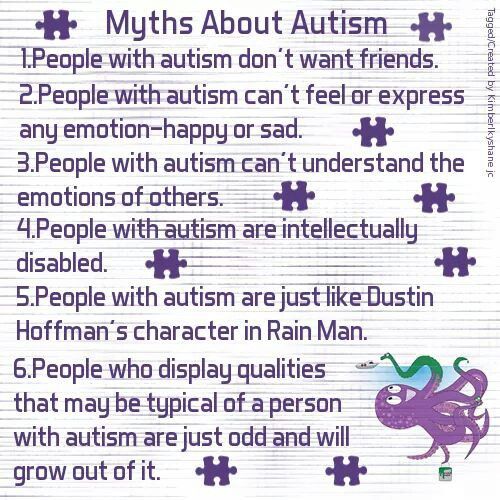
While this study suggests that some children with a diagnosis of autism can go on to function normally, although whether they genuinely "grow out" of autism is uncertain. It is possible that some of these children were misdiagnosed initially, or that intensive therapy helped this group ‘mask’ their underlying condition.
And while this study suggests that there may be individual cases where symptoms of autism can be overcome, it does not provide any evidence about the most effective way this can be done.
As the authors say, more research is needed to explain their findings and to explore how children with autism can be best helped to develop their potential.
Where did the story come from?
The study was carried out by researchers from the University of Connecticut, Queen’s University Canada, The Children’s Hospital of Philadelphia, Hartford Hospital and the Child Mind Institute. It was funded by the US National Institutes for Health and was published in the peer-reviewed Journal of Child Psychology and Psychiatry.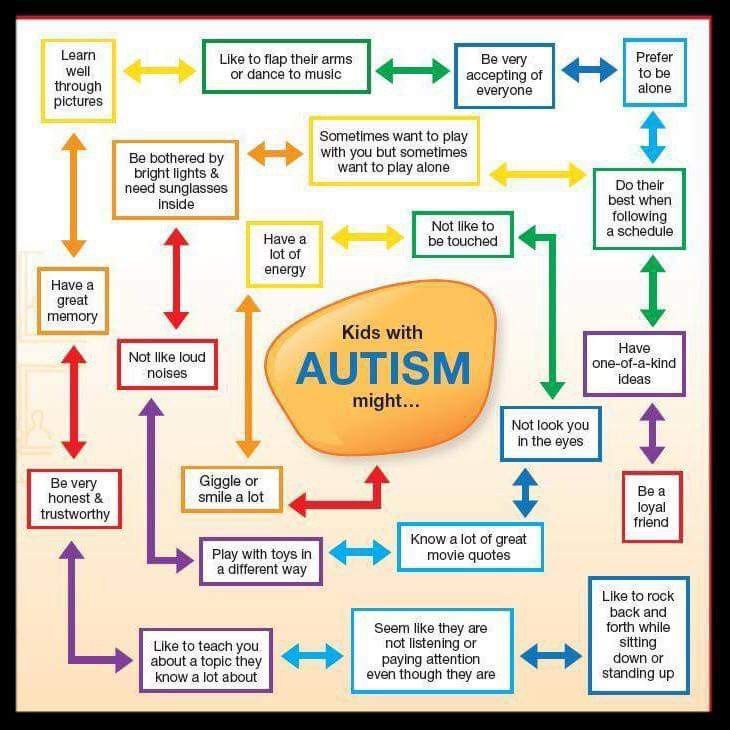
It was covered fairly in the papers, with BBC News and The Daily Telegraph including comments from an expert in the UK. However, the repeated claim in the headlines that children may "grow out" of autism is misleading. The direct effects of ageing on autism symptoms were not studied.
It is uncertain whether children who did not receive treatment for autism would still have experienced an improvement in symptoms as they grew older.
What kind of research was this?
This was an observational study that documented the cognitive, language and social functioning of a group of individuals who had been diagnosed with autism at a young age but who no longer had an autism diagnosis. It is part of a larger ongoing study looking in detail at these individuals.
In this study, the researchers compared the functioning of these children to two other groups:
- one group of individuals with high functioning autism
- one group of individuals with "typical development"
They wanted to find out if the first group still had some residual symptoms of autism or if they genuinely fell within the normal range of functioning.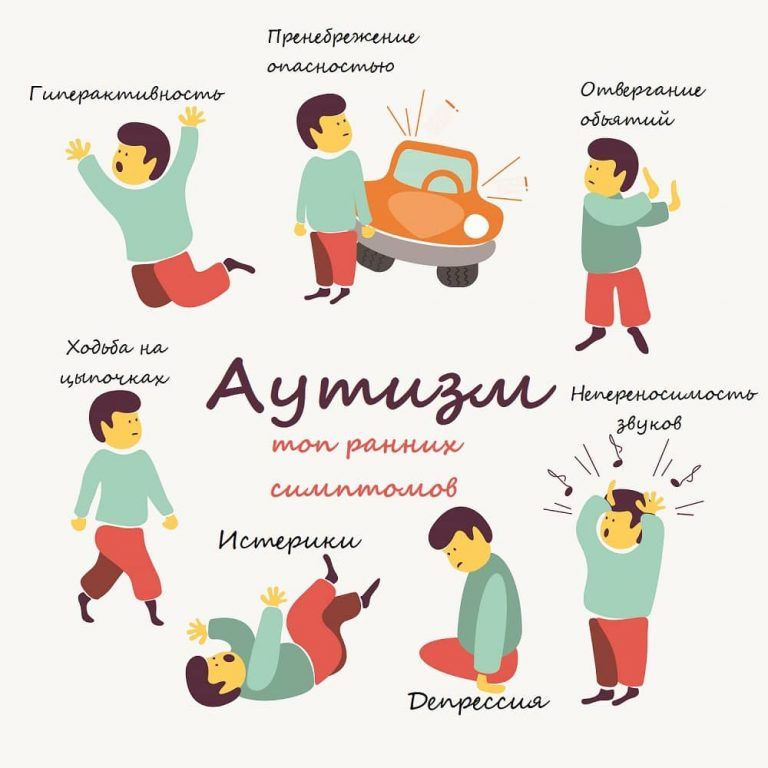
The authors say that although autistic spectrum disorders (ASDs), which also include Asperger syndrome and pervasive developmental disorder, are generally regarded as lifelong, some research suggests that a small number of children with an early history of autism do not meet the criteria for this diagnosis in later years.
Although this could be due to an initial misdiagnosis, some studies suggest that with the right intervention, some individuals can achieve an "optimal outcome" (OO), no longer meeting the criteria for diagnosis of ASD, and losing all symptoms.
Studying individuals who have "lost the diagnosis", the researchers say, has important implications for understanding:
- the neurobiology of autism – how autism affects the brain and how the brain affects autism
- the impact of therapy on functioning
- the mechanisms underlying improvement
What did the research involve?
The researchers recruited:
- 34 individuals with a history of ASD and OO, which is defined as no longer having a diagnosis of autism and losing all symptoms
- 44 high functioning individuals with a current ASD diagnosis
- 34 people who had typical development
Their ages ranged from 8 to nearly 22 years.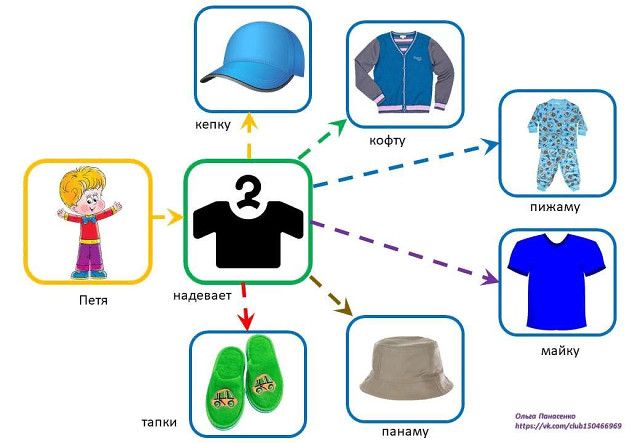 The groups were matched on age, gender and non-verbal IQ.
The groups were matched on age, gender and non-verbal IQ.
All potential participants were carefully screened by telephone interviews with parents, to ensure they met the criteria for inclusion. After screening by telephone, participants were evaluated by specialist clinicians over the course of two or three testing sessions carried out at university or at home. Further parent interviews were also conducted.
The OO individuals that were included:
- had a documented diagnosis of ASD that had been carefully reviewed by an expert
- had a current evaluation by a clinician that ASD was not present
- had high scores on one of the scales used to measure and evaluate symptoms and signs of autism in the areas of communication and socialisation, as reported by parents
- were in normal education, with no special assistance to address autism deficits
The high functioning autism individuals needed:
- to meet diagnostic guidelines for high functioning autism
The "typical development" individuals:
- did not meet criteria for ASD at any point in their development, according to parental reports
- did not have a first degree relative with an ASD diagnosis
- did not meet current diagnostic guidelines for ASD
Participants performed a series of well-established tests to measure their language function, facial recognition, social interactions, communication skills and autism symptoms.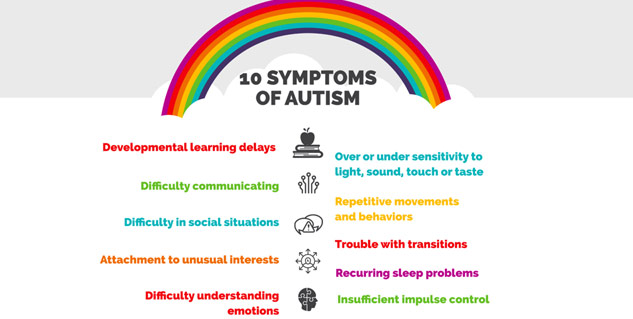
What were the basic results?
Researchers found that:
- The average scores for socialisation, communication, face recognition and most language tests did not differ between the OO group and the typical development group, although three OO individuals showed below-average scores on face recognition.
- Early in their development, the OO group displayed milder symptoms than the HFA group in the area of social interaction but had equally severe difficulties with communication and repetitive behaviours.
How did the researchers interpret the results?
The researchers say the results clearly demonstrate the existence of a group of individuals with an early history of ASD who no longer meet the criteria for this condition. Their communication and social skills are on a par with individuals of typical development, matched for IQ, sex and age.
They say a small number of this group had some weakness on a face recognition test, but not beyond what might be expected by chance.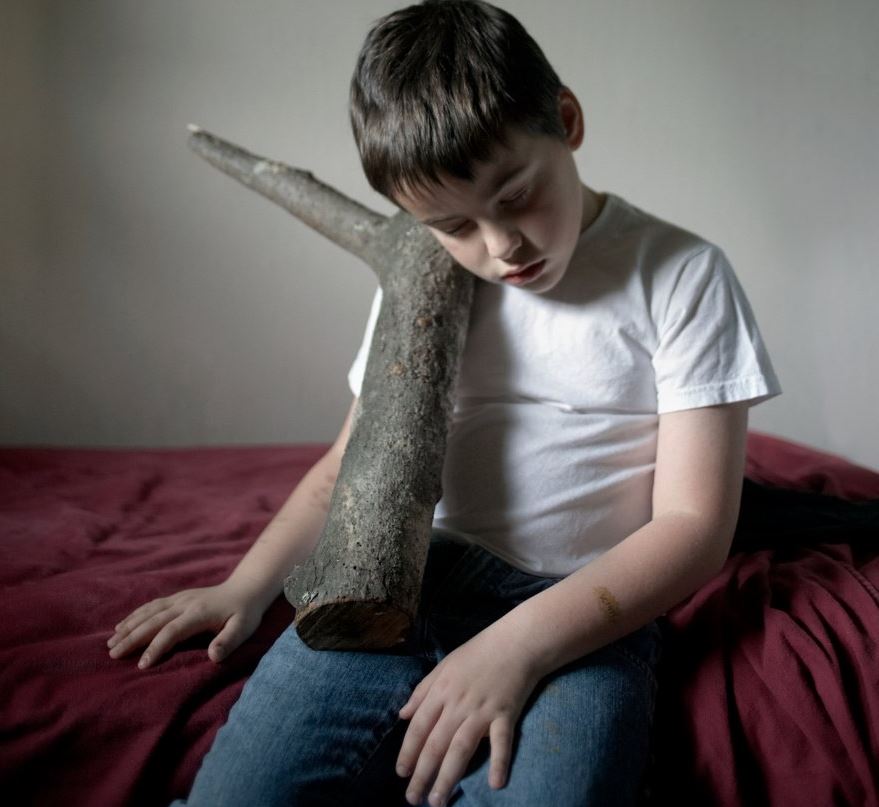
As this is the first part of a wider study, the researchers say that further tests will examine possible deficits in more subtle aspects of social interaction or cognition, in the OO group.
These first results, they say, confirm the possibility that some individuals initially diagnosed with autism can have “optimal outcomes” [ie, their symptoms improve] and function within normal limits.
Conclusion
This interesting study is part of a larger ongoing study looking in detail at individuals with an early history of autism who no longer meet criteria for a diagnosis. It raises several, as yet, unanswered questions. As the authors point out:
- The individuals in the OO group had above average IQ scores. It is possible that this enabled some to "compensate" for (or mask) some of their deficiencies.
- The study does not tell us how many children with ASD might achieve an optimal outcome.
- We do not know which intervention, if any, can produce the highest rate of OO.
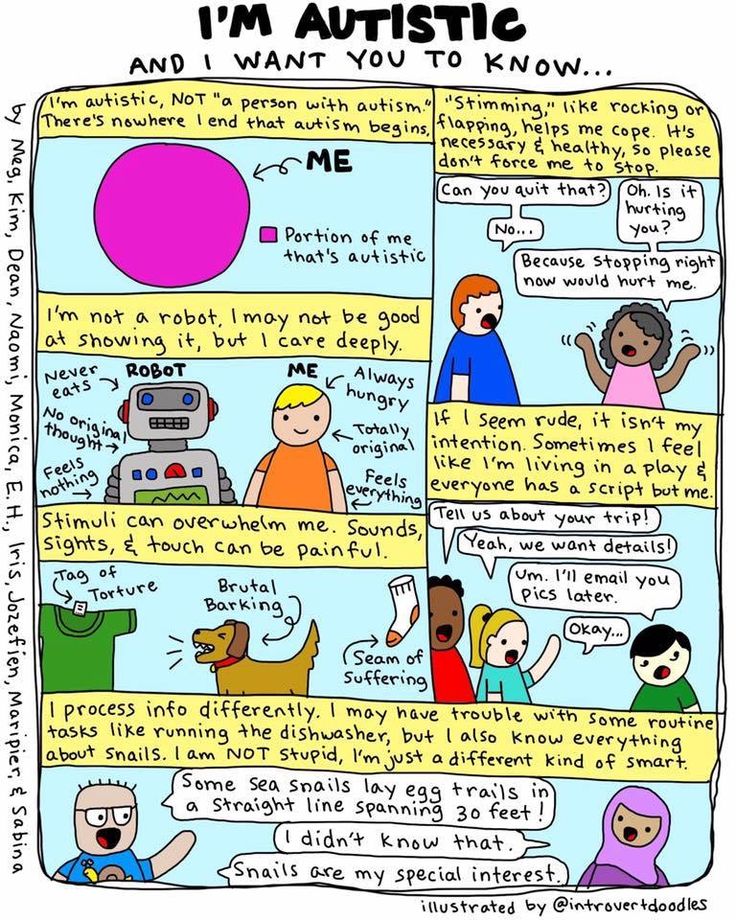 (Intervention data from the OO group was collected and is currently being examined.)
(Intervention data from the OO group was collected and is currently being examined.) - It is not clear to what extent brain structure and function have normalised in OO individuals. (MRIs were carried out on a subset of each group and this data is currently being analysed.)
- It is possible that subtle differences in social behaviour, cognition and communication still exist in those who appear to function normally.
- It is possible that parents of OO children were generally highly involved in the children’s treatment programmes and their social lives and this may maximise the chance of OO.
As the authors say, more research is needed to explain their findings and to assess how children with an ASD can be best helped to develop their potential.
It is normally the case that those with more severe symptoms of autism are unresponsive to treatment and are unlikely to experience an improvement similar to that described in this study. They are likely to find it difficult to live independently as adults and may need additional care and assistance. However, with the appropriate care and support, they can enjoy a good quality of life.
They are likely to find it difficult to live independently as adults and may need additional care and assistance. However, with the appropriate care and support, they can enjoy a good quality of life.
The detection of autism in Russia has increased by more than 2.5 times in five years
April 2, 2021, 04:08
MOSCOW, April 2. /TASS/. The detection rate of autism spectrum disorders (ASD) has grown in Russia by more than 2.5 times over five years thanks to a systematic approach implemented by the Ministry of Health of the Russian Federation together with the professional community. The increase in indicators is also associated with an increase in the number of psychiatrists and child psychologists who have received additional training in the diagnosis and treatment of children with ASD, the Ministry of Health told TASS.
Autism is a developmental disorder that appears during the first three years of a child's life.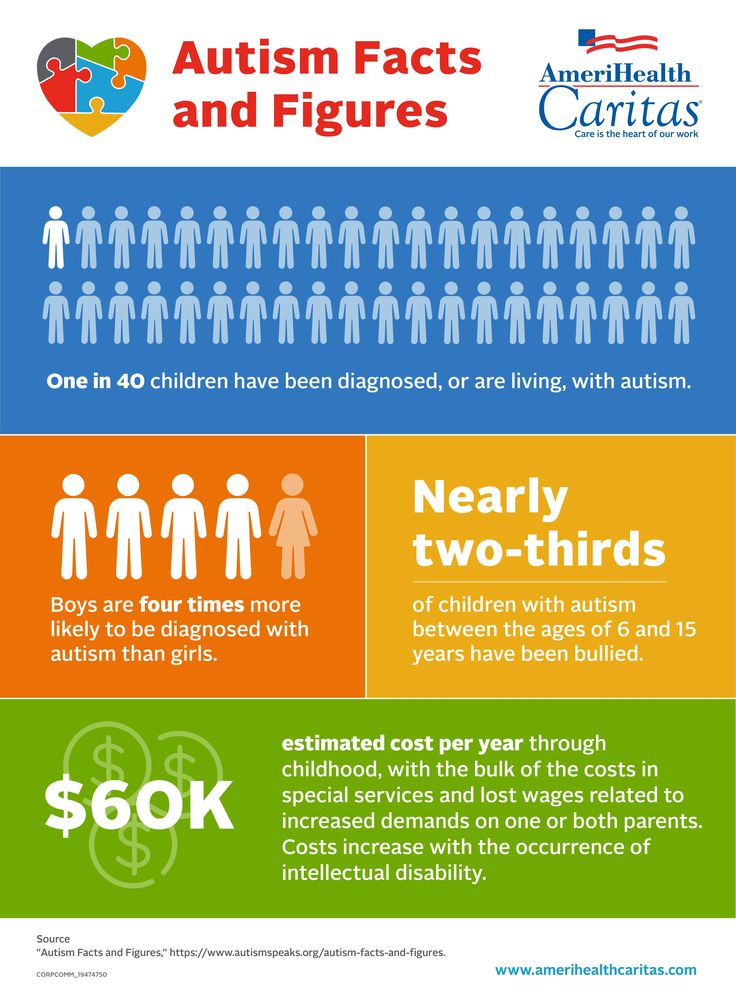 The main symptoms of ASD are the inability to socialize, communicate with other people, use gestures and facial expressions, limited interests, stereotypical repetitive actions. Drug therapy for children with ASD is an auxiliary method of treatment, the main efforts are concentrated in the field of pedagogical correction, inclusive education and social adaptation of children, adolescents and adults with autism. April 2 has been celebrated as Autism Awareness Day since 2007 by the UN General Assembly.
The main symptoms of ASD are the inability to socialize, communicate with other people, use gestures and facial expressions, limited interests, stereotypical repetitive actions. Drug therapy for children with ASD is an auxiliary method of treatment, the main efforts are concentrated in the field of pedagogical correction, inclusive education and social adaptation of children, adolescents and adults with autism. April 2 has been celebrated as Autism Awareness Day since 2007 by the UN General Assembly.
“The detection rate of ASD has increased by more than 2.5 times in five years. The increase in detection rates is also associated with an increase in the number of psychiatrists and child psychologists who have received additional training in the diagnosis and treatment of children with ASD. clinical guidelines are being updated, including issues of diagnosis and treatment of children with ASD," the ministry said.
Also, since 2020, as part of preventive examinations of children from the age of two, screening has been carried out to identify a risk group for the occurrence or presence of mental developmental disorders, including ASD.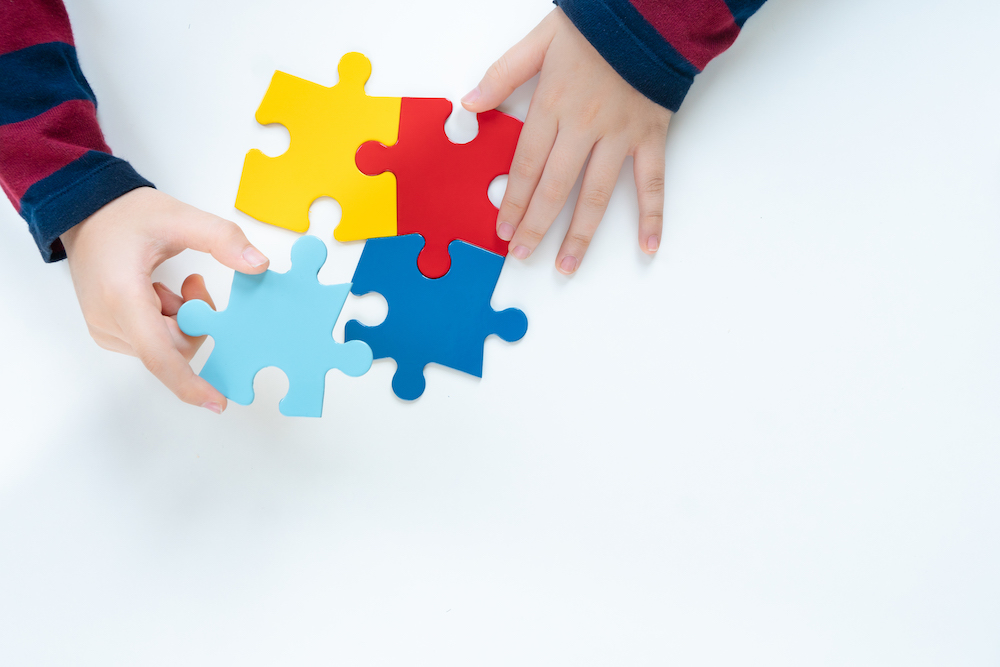 "We also note that, in accordance with the 10th version of the International Classification of Diseases (ICD-10), the diagnosis of Early Childhood Autism has no age limits, that is, it can be made at any age. In practice, it is most often established from two to three years," the Ministry of Health added.
"We also note that, in accordance with the 10th version of the International Classification of Diseases (ICD-10), the diagnosis of Early Childhood Autism has no age limits, that is, it can be made at any age. In practice, it is most often established from two to three years," the Ministry of Health added.
In 2019, the Ministry of Health of the Russian Federation reported that the number of children diagnosed with autism in Russia exceeded 31,000; in 2018 alone, more than 4,000 children were diagnosed with ASD for the first time.
Warning signs
As Ekaterina Men, president of ANO Center for Autism Problems, emphasized in an interview with TASS, changes in Russian statistics do not mean that the number of people with autism has increased, they mean that ASD has become more detected and more correctly diagnosed . According to her, in the past, a child with such a disorder could simply have been misdiagnosed.
"Autism was defined as an endogenous psychosis, one of the types of schizophrenia.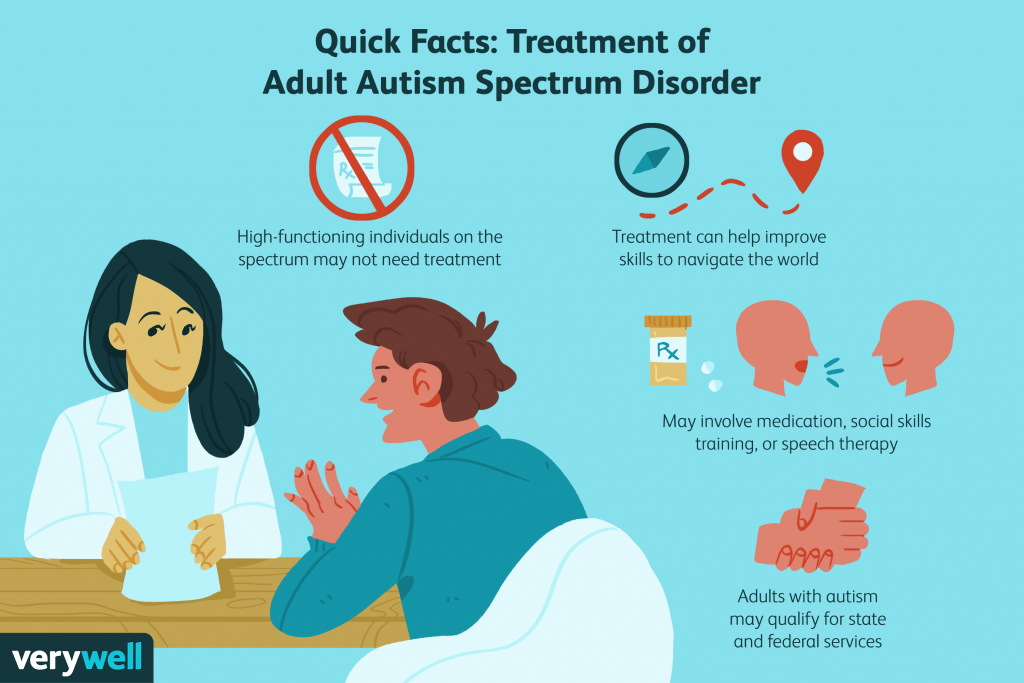 Even earlier, the cause of the disease was seen in a mother who does not love her child enough, cares little for him, does not breastfeed. Psychiatrist Bruno Bettelheim even introduced the term "mother- refrigerators," she said.
Even earlier, the cause of the disease was seen in a mother who does not love her child enough, cares little for him, does not breastfeed. Psychiatrist Bruno Bettelheim even introduced the term "mother- refrigerators," she said.
Changes in the statistics, Men' notes, also indicate that the problem is becoming more visible: "This is a great merit of the parent movement - mothers and fathers who break through walls so that their children receive adequate assistance and opportunities for socialization . The parent community of children with autism in Russia is very developed and consolidated. The International Conference "Autism. Challenges and Solutions", which has been held since 2013 and this year will be held for the ninth time, also makes a great contribution to the understanding of autism and tools for its detection. It encourages the medical community to learn how to properly diagnose autism and work smartly with people with ASD,” Meng added.
ASD always starts in childhood.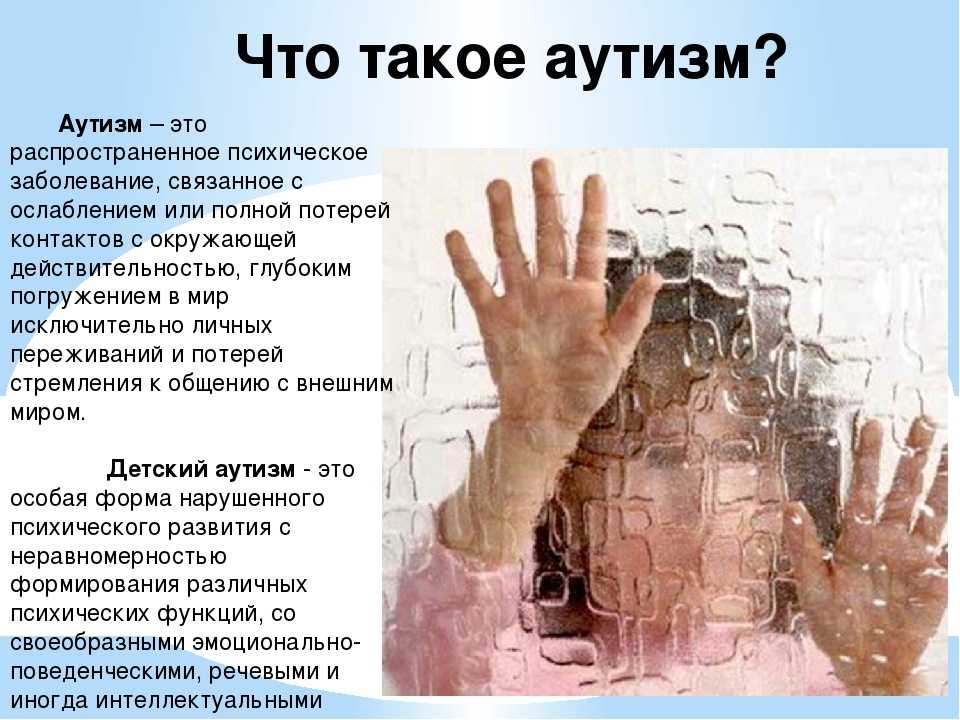 This is a violation of communication and social behavior, so it can be identified when the child begins to show the ability to interact with other people - at about one and a half to two years.
This is a violation of communication and social behavior, so it can be identified when the child begins to show the ability to interact with other people - at about one and a half to two years.
In early childhood, the presence of autism can be suspected by the presence of certain signs. So, alarming signals for parents at an early age can be considered if the child does not respond to his name before 12 months, does not point to objects with his finger until 14 months, does not play role-playing games, for example, daughter-mothers, by one and a half years, can repeatedly repeating the same words or movements, avoids direct eye contact, prefers to be alone, has problems developing speech, reacts unusually to the appearance, taste, color and smell of objects, is sensitive to even small changes in the environment, does not can understand what other people feel and what he himself feels, plays with toys without social meaning and plot.
"However, the presence of one or more of these symptoms does not necessarily equate to a diagnosis of ASD.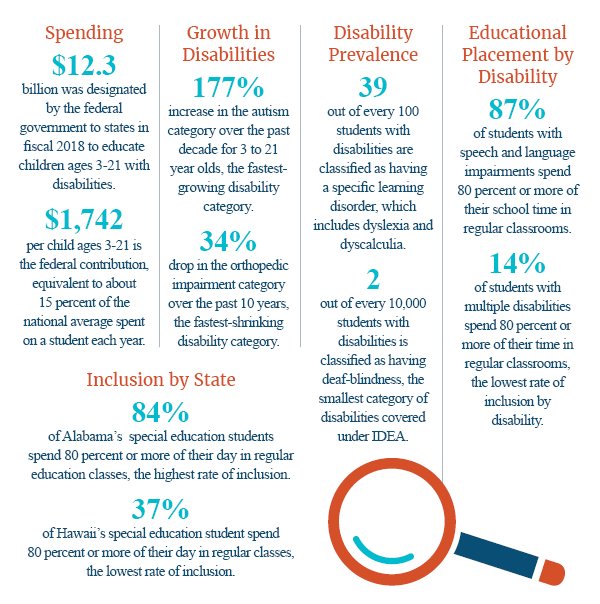 Parents can check their suspicions using the M-CHAT-R / F test. This is a questionnaire that allows you to identify a tendency to autism in children 16-30 months old" Men continued.
Parents can check their suspicions using the M-CHAT-R / F test. This is a questionnaire that allows you to identify a tendency to autism in children 16-30 months old" Men continued.
Adapting to society
According to the president of the Autism Center, manifestations of the disorder can be suppressed with the help of behavioral and biomedical therapies. Treatment can be started at any age, but the sooner the better. By adolescence, therapy gives noticeable results, and the child has a chance to adapt to society and interact with people.
"Behavior therapy or ABA-therapy is a comprehensive therapeutic program based on the applied behavior analysis method. The laws of behavior are objective and universal, but the therapy based on them is always individual. It helps the child to master the skills necessary to communicate with other people Within the framework of this therapy, problematic behavior is corrected and the necessary skills are formed that are not formed automatically or by ordinary upbringing in autism, undesirable forms of behavior that interfere with his socialization (for example, public tantrums) while forming desirable ones (for example, communicate your desires in a socially acceptable way ) are gradually fading away," explained Men, adding that biomedical therapy is also purely individual and depends on the factors that provoked the development of autism.
Tags:
Russia
Autism "in an adult way": how lives who have autism diagnosed at adulthood
- EVA ONEVIROS
- BBC World Service 9000



